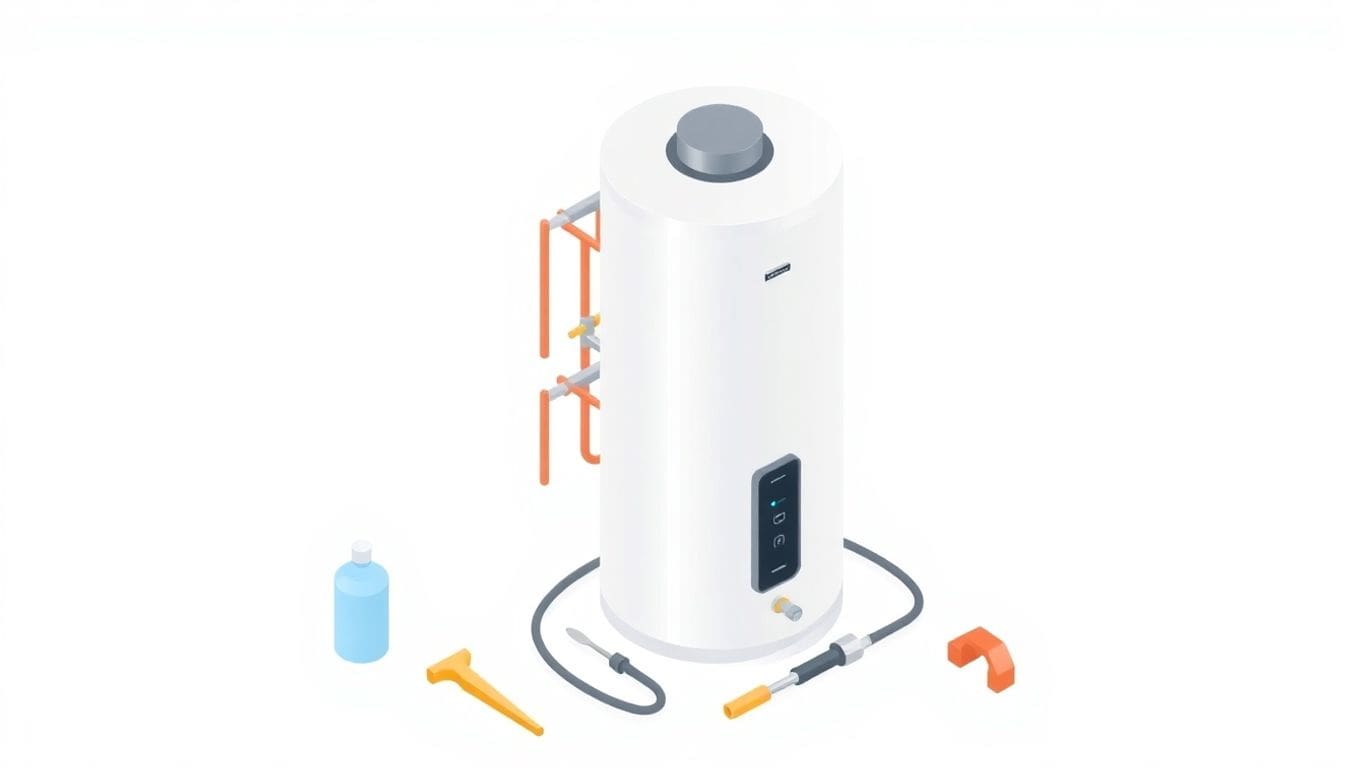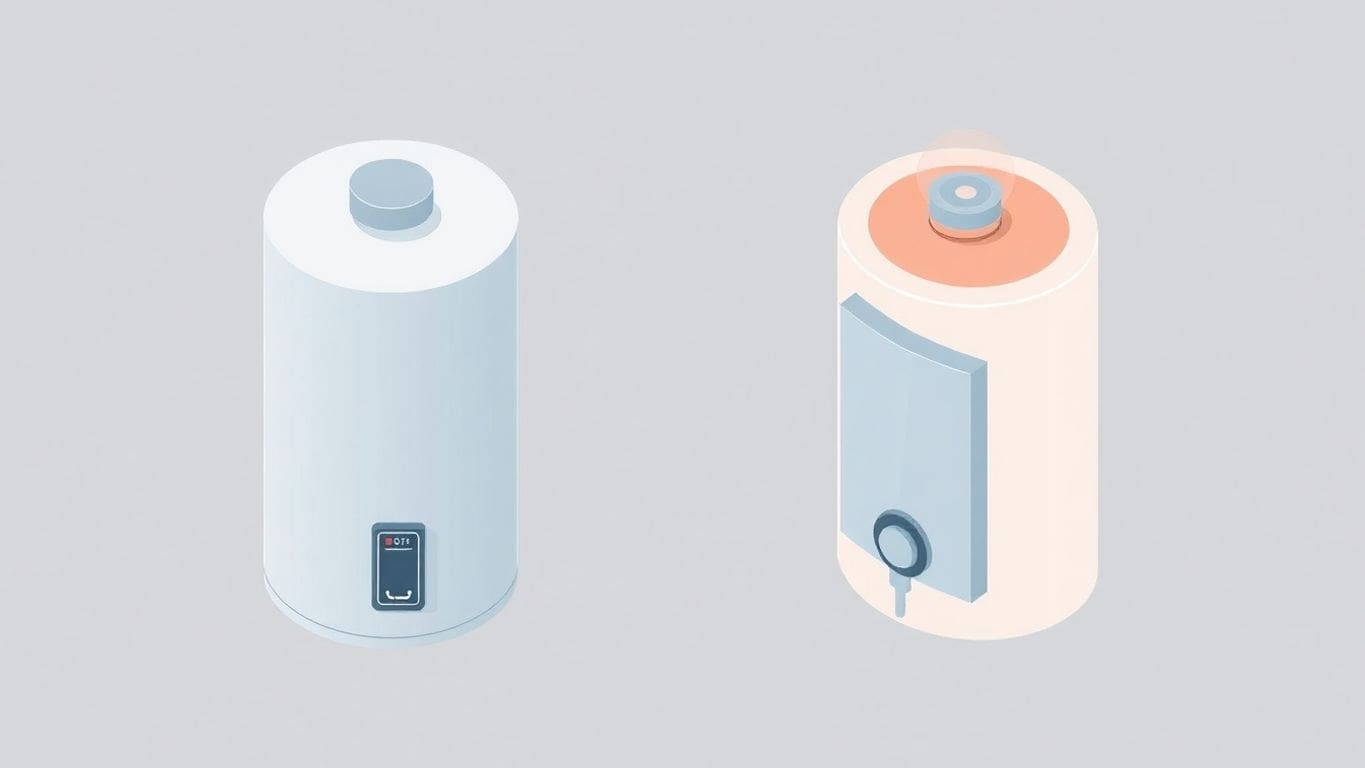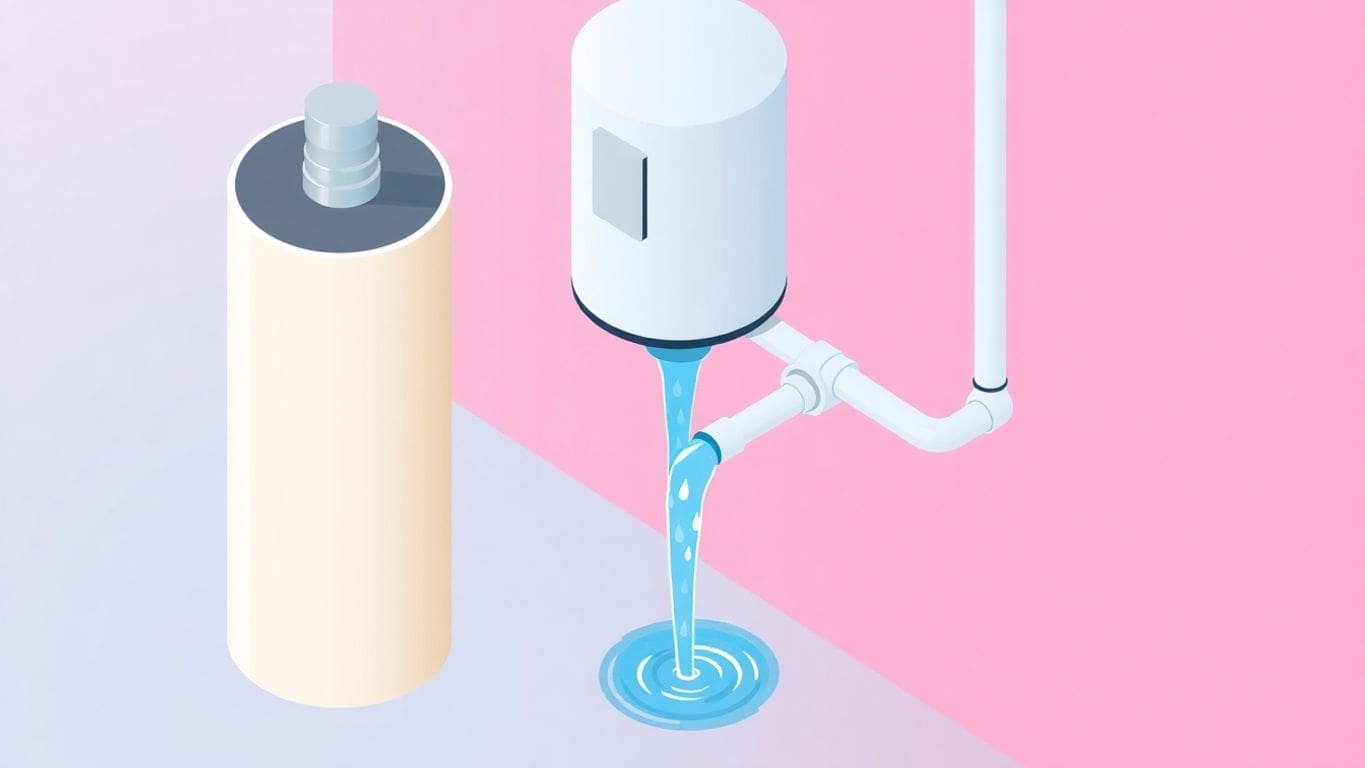
Water heaters are essential for providing hot water in our homes, but when they start leaking, it can lead to serious concerns. Understanding the risks associated with a leaking water heater is crucial for homeowners. This article explores the dangers, causes, and solutions to ensure your home remains safe and efficient.
There are several types of water heaters. The most common ones are:
Water heaters heat water for your home. They do this by using energy from gas or electricity. When you turn on a hot water tap, the heater sends hot water through the pipes. This process is simple but very important for daily tasks like showering and washing dishes.
Water heaters have several key parts:
Understanding how your water heater works can help you spot problems early. Regular checks can save you time and money.
If you see water pooling around your water heater, it’s a clear sign something is wrong. This could mean a leak. Check the area regularly to catch any problems early.
Listen for strange noises coming from your water heater. Sounds like dripping or hissing can indicate a leak. Also, if you smell something odd, it might be a sign of trouble. Pay attention to these signs.
If your water isn’t heating up like it used to, it could be a problem. You might notice that some days the water is hot, and other days it’s cold. This inconsistency can be a sign of a leak or other issues with your heater.
Always keep an eye on your water heater. Catching problems early can save you money and hassle later on.
If your water heater is over 10 years old, look out for these signs:
These signs can mean it’s time to think about replacing your heater. Keeping an old heater can lead to water damage and higher energy bills. Consider getting help from a professional if you notice these issues.
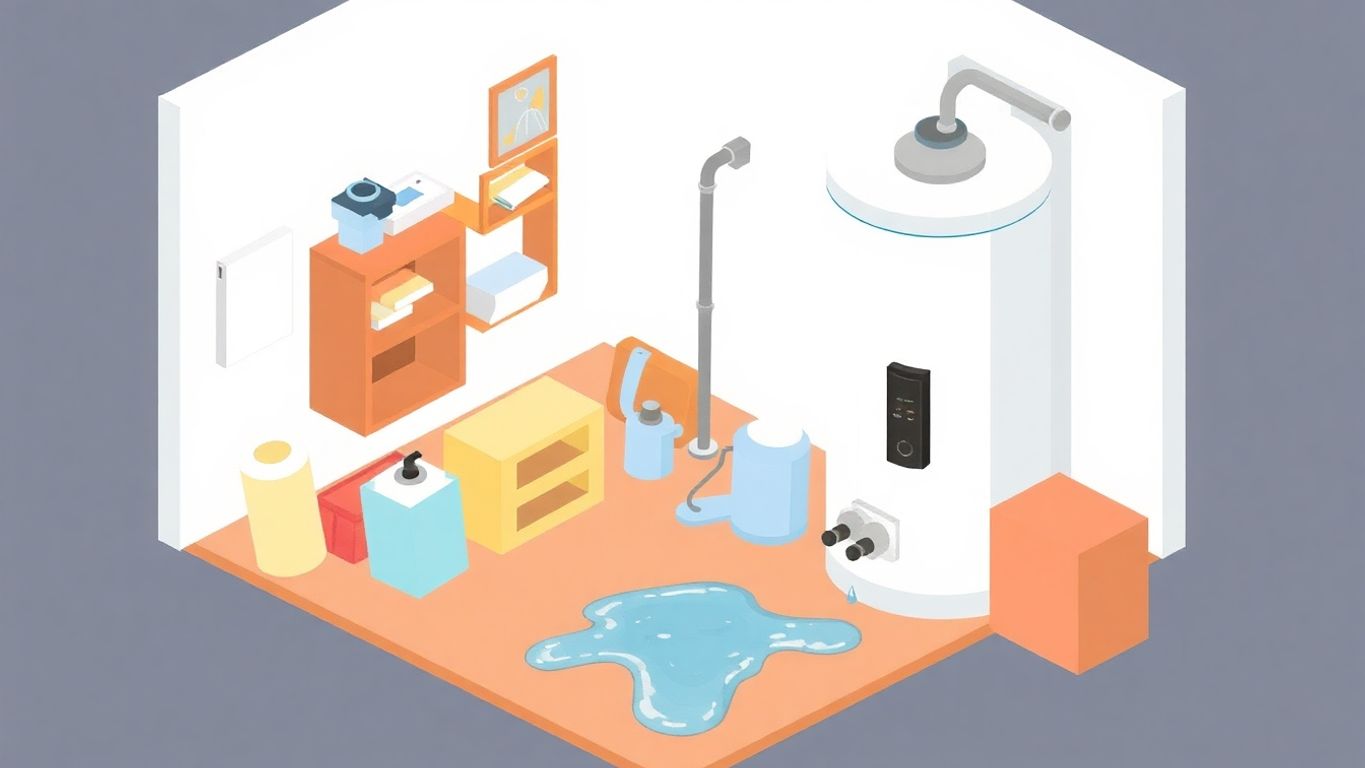
A leaking water heater can be more than just a nuisance. It can lead to serious problems. Here are some potential hazards:
When your water heater leaks, it can affect your home’s safety. Water can weaken floors and walls. This can make your home unsafe. You might also face higher repair costs if the damage is severe.
Leaks can create health risks too. Standing water can attract pests like insects and rodents. These pests can carry diseases. Additionally, mold can grow in damp areas, which can cause breathing problems.
Always check your water heater regularly. Catching leaks early can save you from bigger issues later.
One of the main reasons for leaks is corrosion. This happens when the metal parts of the water heater start to break down. Over time, rust can form and create holes. Regular checks can help catch this early.
Sometimes, the connections or fittings can become loose. This can happen due to wear and tear. If these parts are not tight, water can escape. It’s important to check these areas often.
Water heaters work under pressure. If the pressure gets too high, it can cause leaks. This can happen if the temperature is set too high or if there is a problem with the pressure relief valve. Keeping an eye on the pressure can prevent leaks.
Remember, catching these issues early can save you money and trouble later on!
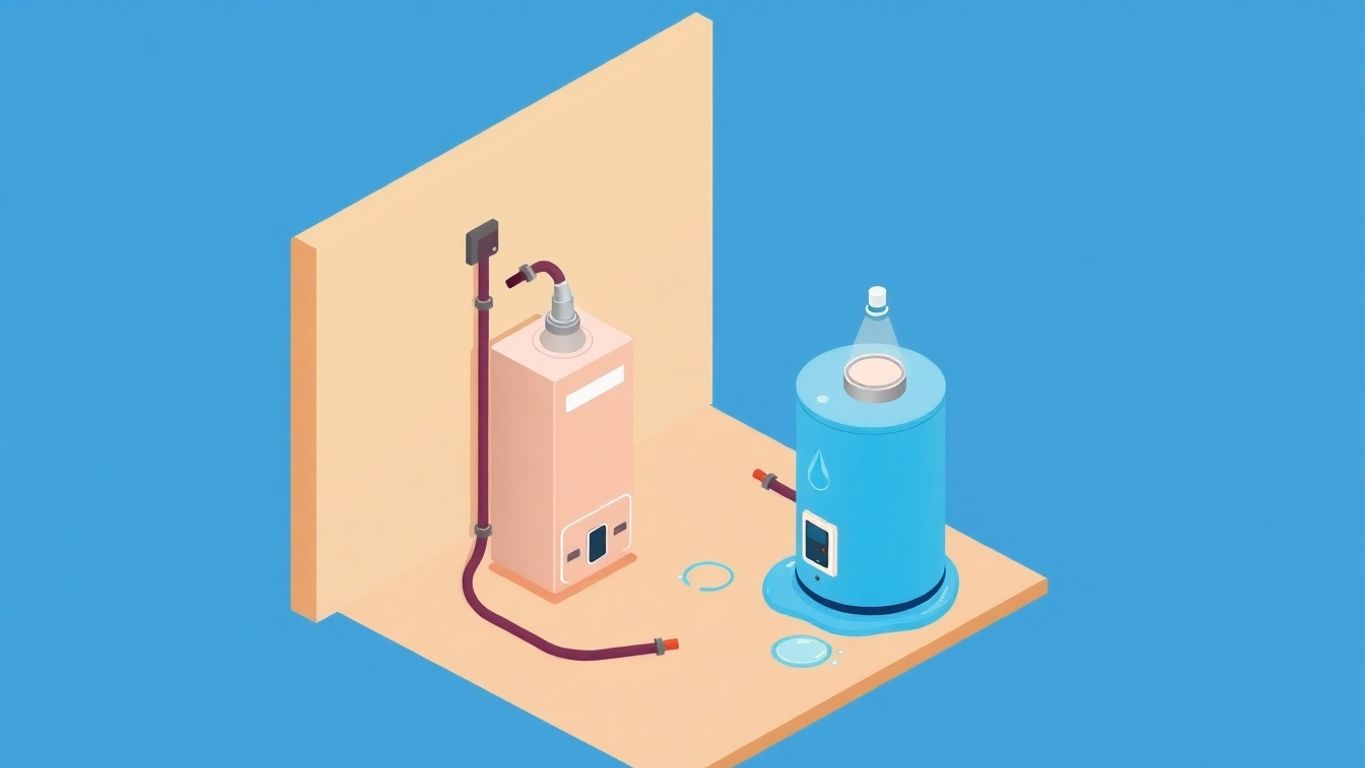
When you find a leak in your water heater, it’s important to act quickly. Here are some steps you should take right away:
Taking quick action can save you from bigger problems later.
By following these steps, you can manage the situation better and keep your home safe.
To keep your water heater in good shape, regular maintenance is key. Here are some tips:
If your water heater is old, it might be time for a new one. Newer models are often more efficient. They can save you money on energy bills and reduce the risk of leaks. Look for models with good energy ratings.
A leak detection system can alert you to problems early. This system can:
Taking these steps can help you prevent leaks and keep your home safe. Regular checks and updates can save you time and money in the long run.
Choosing a good repair service for your water heater is important. Here are some tips to help you find the right one:
Finding a reliable repair service can save you time and money.
Remember, it’s better to choose a service that you trust. A good repair can keep your water heater running well for years. If you notice any issues, like leaks, don’t hesitate to call a professional. They can help you with troubleshooting tips and solutions to keep your home safe.
When your water heater leaks, you face two main choices: repair or replace. Repairing a leak can be cheaper upfront. However, if your heater is old, replacing it might save you money in the long run. Here’s a quick look at the costs:
| Action | Average Cost |
|---|---|
| Repair | $150 – $500 |
| Replacement | $800 – $2,500 |
A leaking water heater can lead to higher utility bills. When water leaks, your heater works harder to keep the water hot. This can cause your energy costs to rise. You might notice:
Your homeowner’s insurance may cover some costs related to a leaking water heater. However, this depends on your policy. Here are some things to check:
Remember, acting quickly can help you save money. The sooner you address a leak, the less damage it can cause.
A leaking water heater can waste a lot of water. This can lead to higher water bills and is bad for the environment. Even a small leak can add up over time. You might not notice it at first, but it can waste gallons of water each day.
When your water heater leaks, it may not work as well. This means it has to use more energy to heat water. More energy use can lead to higher utility bills. It also means more pollution from power plants. Keeping your water heater in good shape helps save energy.
If you have a leaking water heater, consider these options:
Taking care of your water heater is not just good for your home. It’s also good for the planet. By fixing leaks and using energy-efficient models, you can help reduce waste and save money.
Smart water heaters are becoming popular. They can connect to your home’s Wi-Fi. This means you can control them from your phone. You can set schedules and check the temperature easily. This helps save energy and money.
Many new water heaters have energy-saving features. These can include:
These features help reduce your energy bills and are better for the environment.
The future of water heating looks bright. Here are some trends to watch:
Keeping up with these innovations can help you choose the best water heater for your home. It’s important to stay informed about new technology.
If you notice water around your water heater, the first step is to turn off the water supply to prevent more leaks. Then, check if the power source is still on and consider shutting that down too. It’s best to call a plumber to inspect the issue.
Yes, a leaking water heater can lead to water damage in your home. It can ruin floors, walls, and even furniture if not fixed quickly.
Look for signs like puddles of water near the heater, strange noises, or if the water temperature is not consistent. These could all mean there is a leak.
Water heaters can leak due to rust, loose pipes, or too much pressure inside the tank. Regular checks can help catch these problems early.
No, it’s not safe. A leaking water heater can lead to electrical issues or even cause a fire. It’s important to address the leak right away.
It’s a good idea to check your water heater at least once a year. Regular maintenance can help you spot leaks before they become big problems.
Ignoring a leak can lead to expensive repairs, damage to your home, and even health risks from mold or mildew.
Some small leaks might be fixed with basic tools, but it’s usually best to call a professional plumber to ensure it’s done safely and correctly.

